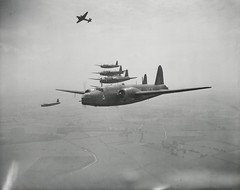The Fourth Crusade - a Selective Bibliography
My recent research into the Fourth Crusade has been making good progress. I have learned--and unlearned-- a lot more than I did a month ago, although inevitably there is always more...
 |
| The Siege of Constantinople |
The mutual incomprehension and different motives between the Pope, the Franks, the Venetians and the Byzantines led to a tragedy of accelerating inevitability. There were no Christian winners of the Fourth Crusade: Constantinople, immeasurably the greatest city in the world, was all but gutted and its empire emasculated; few of the Crusade's leaders survived to return home. Those Crusaders who pressed on to the Holy Lands achieved next to nothing, and Jerusalem remained in Muslim hands. The Crusade mounted three successful assaults on cities: Constantinople twice, and Zara once; all were Christian.
Those who are interested in the topic may find my reading list helpful. There is no shortage of well-written and researched material on the subject, although it has surprisingly rarely featured in fiction.
Primary Sources
The Conquest of Constantinople, Robert of Clari
This account of the conquest, by a humble knight, neatly counterbalances Villehardouin's "official" version. Not to be relied on facts, but his awe on arriving at Constantinople is palpable.
The Conquest of Constantinople, Geoffrey of Villehardouin
One of the Crusade leaders, Villehardouin is not always to be taken at face value. His negotiations with the Venetians at the outset set in train many of the horrific consequences of the Crusade, and he understandably keen to push responsibility elsewhere.
Histories of the Crusade
The Fourth Crusade, David Nicolle
This Osprey illustrated history, only 100 or so pages, is an excellent primer. The battlefield diagrams, as one would expect from Osprey, are invaluable.
The Fourth Crusade - the Conquest of Constantinope, Donald Queller and Thomas Madden
Perhaps the definitive history of the Crusade. Queller and Madden judiciously assess the sources, clearly outline the sequence of events and delineate the key players. Indispensable for students of the period.
The Fourth Crusade and the Sack of Constantinople, Jonathan Phillips
Covers much the same ground as Queller and Madden, in equally engaging fashion. In line with most modern scholarship, Phillips acquits the Venetians of the charge of wilfully aiming the Crusade at Constantinople.
Enrico Dandolo and the Rise of Venice, Thomas Madden
Working on his own this time, Madden gives a fascinating insight of Venetian society throughout the 12th century and shows how the Venetian doge Dandolo was shaped and constrained by his environment. Impressive scholarship and a stimulating tale.
The Fourth Crusade, Michael Angold
Angold approaches the Crusade thematically rather than chronologically, so this is not the place to start your crusade researches; but once you understand the events and the sources, this study offers some telling insights.
Histories of the Middle Ages
The Middle Ages, Morris Bishop
A high-level study of a lengthy period by its nature offers little detail, but this is a good overview for the beginner. Bishop, an American career historian, bizarrely dismisses the Emperor Frederick 'Stupor Mundi' (perhaps the first 'Renaissance prince') as "not really a very nice man", which is perhaps not entirely to the point.
Daily Life in the Middle Ages, Paul B Newman
This one does exactly what it says on the tin. Food, drink, underwear, armour, medicine: all human life is here. Well worth a read for anyone interested in any aspect of the Middle Ages.
Although the Fourth Crusade is fascinating, the book titles display a dismal lack of variety. The logic of calling your book "The Fourth Crusade" is undeniable, but in fiction we can allow ourselves a little more latitude. Tune in next time to see my working title...




















